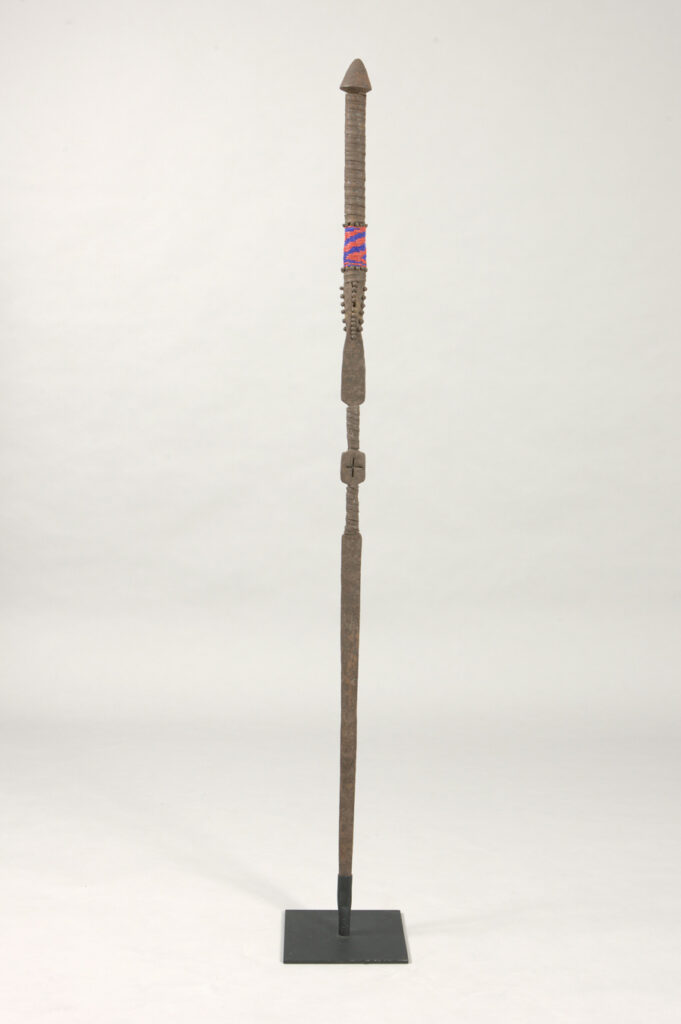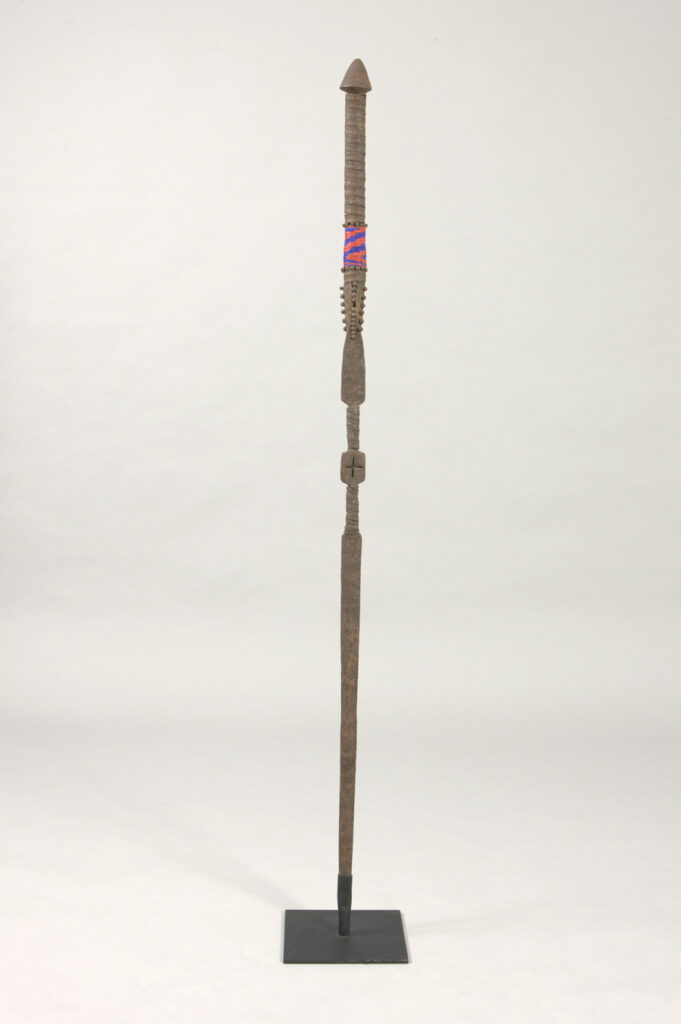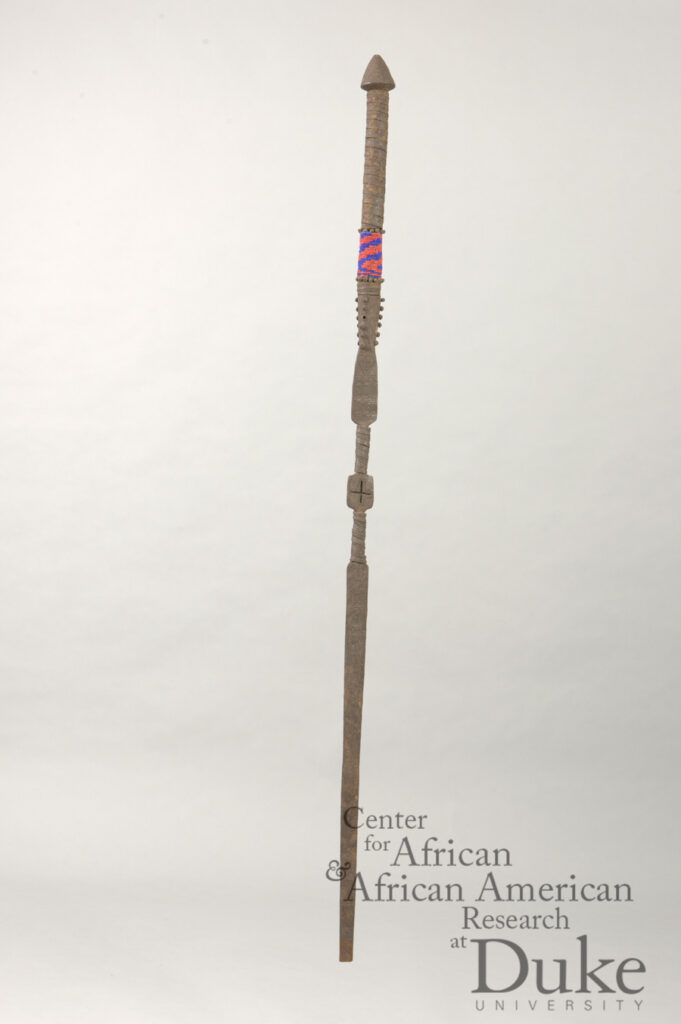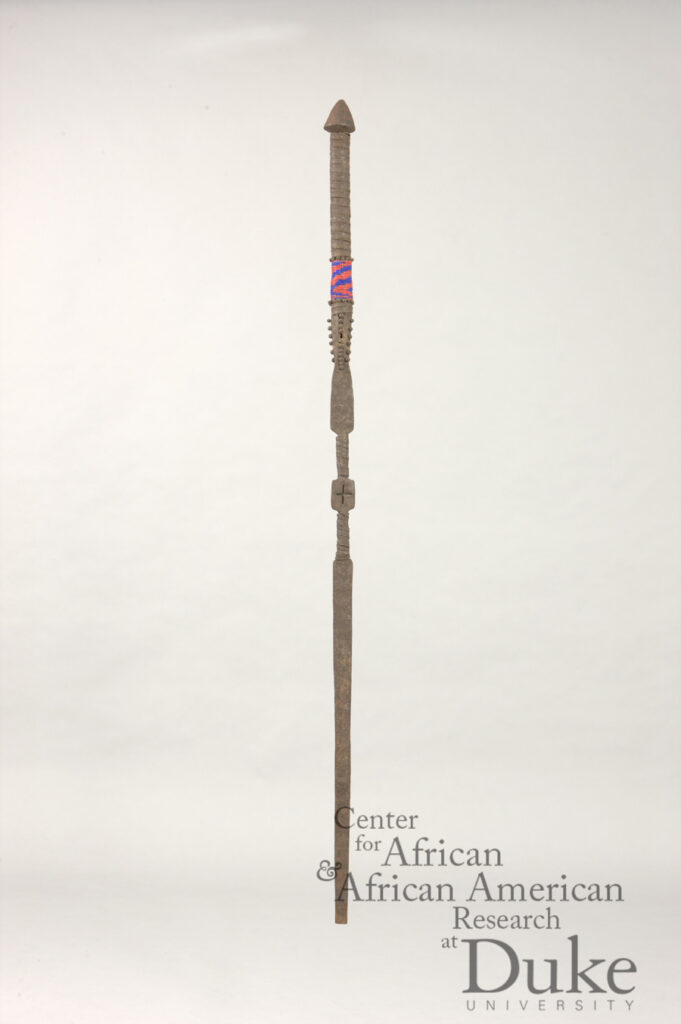



Staff - 145 cm
(centimeters)
Staff - 4'9"
Sheath - 4'7"
(inches)
Òriṩha Oko is one of the principal deities in Yoruba indigenous religion. Associated with the fertility of farms, he also has the power to aid in childbirth, restore people to health using herbal medicines and protect devotees against witchcraft. He is also a hunter.
As suggested by the combination of a red vertical stripe and a parallel white vertical stripe on anthropomorphic representations of this god, Òrìṣà Oko is closely associated with Ṣàngó and is said to be a good friend of that god of thunder, lightning and fire.
To many observers, this staff looks phallic. Indeed, okó (“penis” in Yorùbá) is a near-homonym of oko (“farm” in Yoruba). This god’s counterpart in Cuban Santería/Ocha also possesses a phallic form, recognized as such by many santeros. It features a vertical roofing tile between two coconuts. Nonetheless, Ìyá Ọ̀ṣun Òṣogbo Tàlàbí Adédoyin Fáníyì told Prof. Matory that she can see no resemblance between the West African god’s staff and a penis (December 2016, Durham, NC).
Blacksmiths in the town of Irawo are uniquely authorized to forge his staff, staffs of this kind, which are made from iron hoes provided by the client who wishes to found an Òriṩha Oko shrine. This reworking of the iron results in a finer metal. Although Orisha Oko was never a king, his staff is dressed as one. If the person can afford it, the staff may be stored and protected in a cotton sheath covered with European glass beads.
The staffs for Oko are usually phallic in shape. Professor Matory observes, in this regard, a likeness between the word for farm (oko) and the word for penis (okó). Verbal and visual puns of this sort abound in Yoruba indigenous religion. However the priestess Talabi Adedoyin Faniyi denies that worshipers intend for the staff to look like a penis.
This staff and this sheath were purchased seperately. they appear to have belonged to separate worshippers, since the sword is much longer than the sheath.
Contact
Sacred Arts of the Black Atlantic Project, Duke University
Box 90091
Durham, NC 27708
Email
jm217@duke.edu